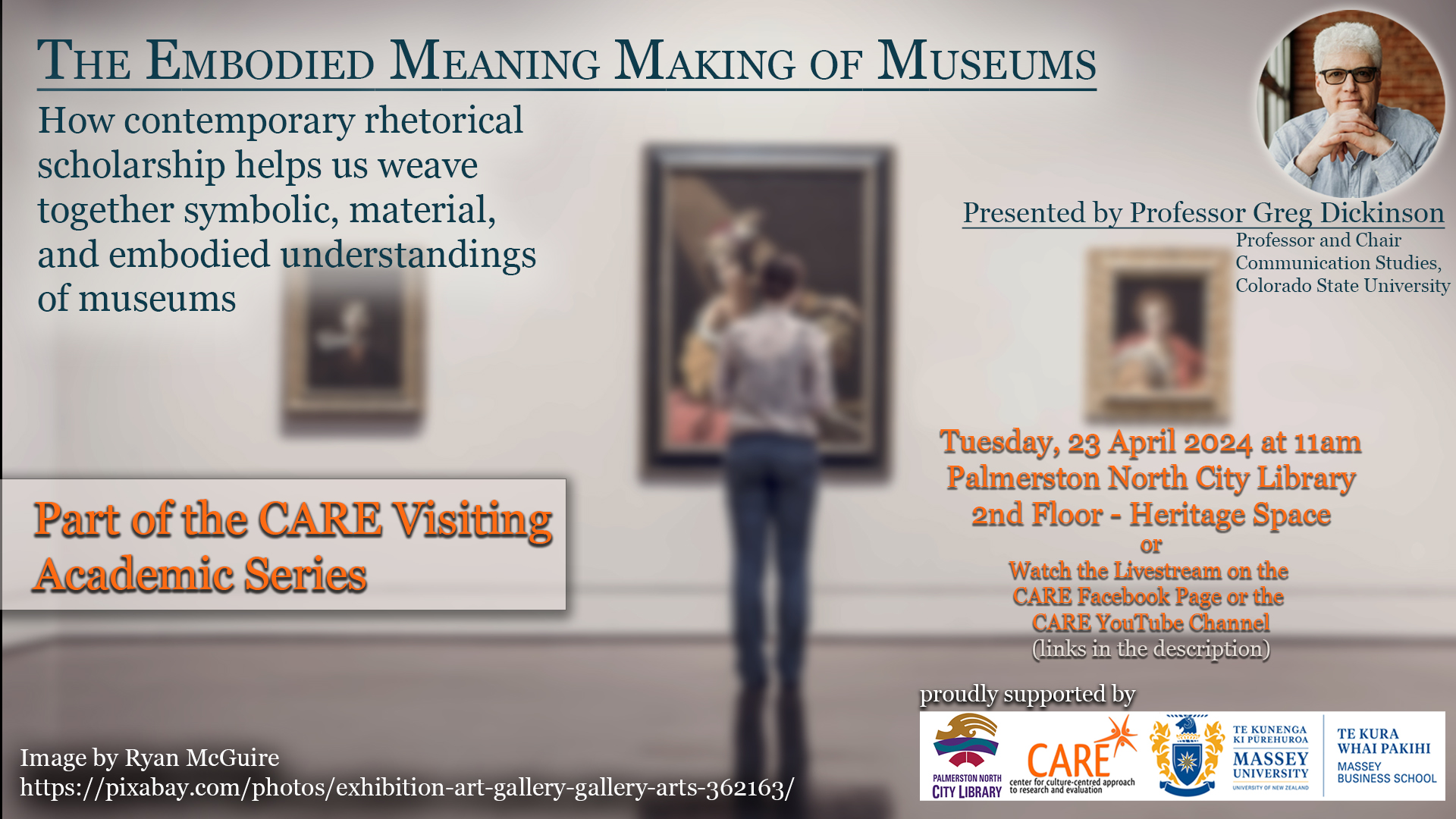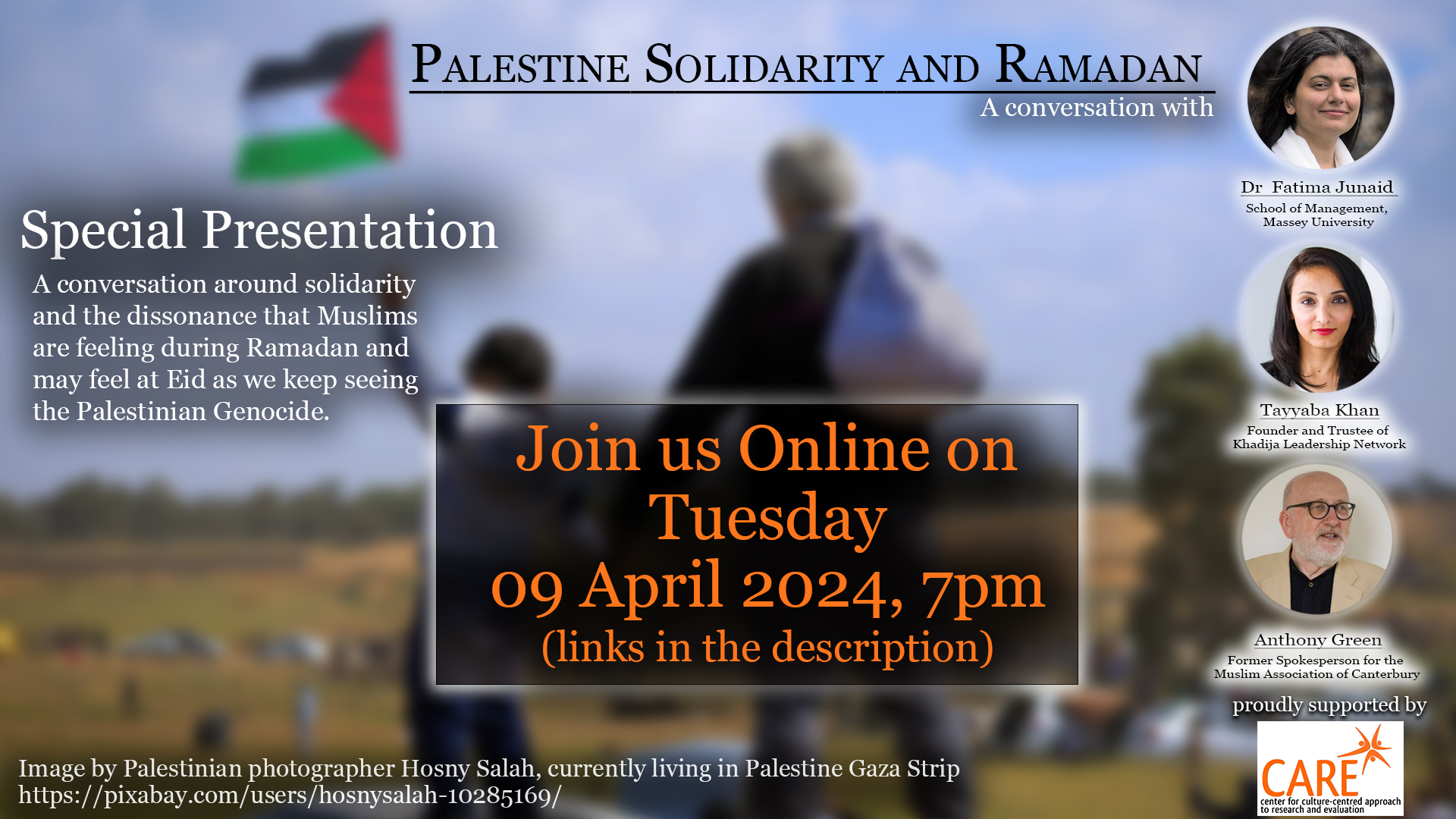Hindutva uses loyalty to silence critique
Source: YouTube https://www.youtube.com/watch?v=ikSEryxBhNk

Center for Culture-Centered Approach to Research and Evaluation
Hindutva uses loyalty to silence critique
Source: YouTube https://www.youtube.com/watch?v=ikSEryxBhNk
Hindutva’s silencing of conversation on poverty in India
Source: YouTube https://www.youtube.com/watch?v=1WFhIPzOeCM
Hindutva as an extremist movement manufactures the anti-national to silence critique
Source: YouTube https://www.youtube.com/watch?v=6P0pBeYIt8o
Massey University Professor Mohan Dutta joins Emile Donovan to examine the India on RNZ Nights
From Nights, 10:30 pm on 2 May 2024
This follow-up talk documents the attack of Hindutva groups on Muslims.
Facebook:
The talk documents the attack of Hindutva groups on Christians
Facebook Live Stream: https://www.facebook.com/CAREMassey/videos/2204176226590196
CARE is excited about this upcoming Public Talk, a part of the CARE Visiting Academic Series: The Embodied Meaning Making of Museums – Presented by Professor Greg Dickinson – Professor and Chair Communication Studies, Colorado State University.
Tuesday,23rd April 2024 @ 11am Palmerston North City Library, 2nd Floor- Heritage Space and Livestream on CARE Facebook & CARE YouTube channel.
The presentation explores how contemporary rhetorical scholarship helps us weave together symbolic, material and embodied understandings of museums.
Museums are powerful cultural and communicative institutions. Museums are often and correctly understood as institutions of Western modernity, central to colonialism and imperialism, and are a location of crucial contestations of the relations among past, present, and future. They are also powerfully effective and affective technologies of communication. Understanding how to engage museums as communicative institutions depends on a rich understanding of the modes of museal communication.

In this presentation Prof. Dickinson will trace the communicative and rhetorical modalities of museums. Drawing on my, and my colleagues, research on US American museums—with particular attention to the Buffalo Bill Center of the West—he will focus on the rhetorical nature of collection and display practices within museums. While many within museum studies have explored both collecting and display, rhetoric scholars bring field-specific questions and concerns to these practices, questions and concerns that can enliven us to the political consequentiality of museums. Contemporary rhetorical scholarship helps us weave together symbolic, material, and embodied understandings of museums.
Livestream Links:
Facebook LIVE: https://www.facebook.com/events/1126142745176836
YouTube LIVE:
https://www.youtube.com/watch?v=jG4pwEiJVhA
CARE Facebook Page:
https://www.facebook.com/CAREMassey
CARE YouTube Channel:
https://www.youtube.com/channel/UCF760E7rBst3U5GmJ5FhDDw
CARE Twitter page
https://twitter.com/CAREMasseyNZ
Professor Mohan Dutta reflects on the colonial divide and rule strategy that pits migrants against Māori, outlining the role of migrant-Maori solidarities in building an anti-racist Aotearoa.
Join us online on Tuesday 09 April 2024, 7pm for CARE’s Special Presentation on Palestine Solidarity and Ramadan with Dr. Fatima Junaid, Tayyaba Khan and Anthony Green.
A conversation around solidarity and the dissonance that Muslims are feeling during Ramadan and may feel at Eid as we keep seeing the Palestinian Genocide.
Supporting each other to keep going with the solidarity efforts and acknowledging that any effort is good as long as we are not silent. Please join us as we ponder on the question of what it means to have Eid in these times.

Livestream Links:
CARE Facebook Page:
https://www.facebook.com/events/957996199291968/
CARE YouTube Channel:
https://www.youtube.com/channel/UCF760E7rBst3U5GmJ5FhDDw
Reading:
Below is a document prepared by Anthony Green for the online talk supported by CARE – Center for Culture-Centered Approach to Research and Evaluation.
A selection of some different perspectives on the uses of language and on ways of seeing – a few examples of texts and sources that may be of interest.
Presenters:
Dr. Fatima Junaid is an experienced consultant and educator working within public and private sector for over a decade. Dr. Junaid has done extensive research with marginalized communities including refugees, women, migrants and fishers’ communities. She focuses on developing mechanisms of support for better wellbeing outcomes. Currently she is a Senior lecturer at Massey University and a member of the several wellbeing (academic and professional) organisations. She also runs a social media support network group for Pakistani women in academia.
Dr Junaid can be reached at f.junaid@massey.ac.nz or
https://www.linkedin.com/in/fatimajunaid1/
Founder and trustee of Khadija Leadership Network, the New Zealand (NZ) Peace Ambassador for the European Muslim League, former Director of Advocacy at the Office of the Health and Disability Commissioner, and a community development practitioner with over 15 years of experience having worked with the migrant and refugee communities in The Occupied Territories of Palestine, Australia, United Kingdom and New Zealand. Tayyaba currently sits on the governance board of Mixit & Belong Aotearoa. She is also a regular panellist on RNZ’s ‘The Panel’, and ‘The AM Show’.
Originally from the UK, he worked as a teacher of English and Literature, first in the UK and then, for eighteen years in Singapore. In the six months’ period after the mosque attacks, and again in the 2020 “anniversary,” he served as spokesperson for the Muslim Association of Canterbury
His writings include books commissioned by Muis (Majlis Ugama Islam Singapura, Singapore’s Islamic Council), dealing with all aspects of the development and work of that body: its history, mosque-building programme, Hajj organisation, and more. His own work includes a history of how people travelled by sea from Southeast Asia to journey to Mecca for the Hajj. His interest is in people’s stories, particularly of those who are “unsung” – what the poet Brian Patten called, “the loose change history spent without caring.”
Image by Palestinian photographer Hosny Salah, currently living in Palestine Gaza Strip
https://pixabay.com/users/hosnysalah-10285169/
CARE Twitter page:
Through her responses to a series of wide-ranging questions, Dr. Samah Jabr, Head of the Mental Health Unit within the Palestinian Ministry of Health, gives essential insights into the ways to understand Palestinian mental health before, during, and after catastrophe and genocide. By invoking the principle of “observing and learning” from Palestinians in Gaza and the West Bank, Dr. Jabr challenges western pathologizing and individualizing around mental health, and offers a community-centered and liberatory alternative framework.
Professor Walid Adel Afifi, Dept of Communication; Associate Dean, Division of Social Science, University of California – Santa Barbara
Associate Professor Guido Veronese, in Clinical and Community Psychology, University of Milan-Bicocca, Italy.
Visiting at Gaza Community Mental Health Program, Gaza where I teach Family Therapy.
Dr. Samah Jabr, consultant Psychiatrist, Head of the Mental Health Unit, MoH
Acknowledgements:
Image by Palestinian photographer Hosny Salah, currently living in Palestine Gaza Strip
Link: https://pixabay.com/users/hosnysalah-10285169/
Music: Native American Drums 2 Hours, Royalty Free Music by Kevin MacLeod